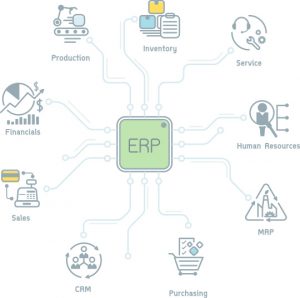8 things people hate interacting with corporate information systems

- Information systems limit the powers of managers in an organization . You as a manager are responsible for 10% of the organization’s revenue but can not order a $ 10,000 project if the involvement of the information systems department is required. Moreover, the bureaucratic and management processes of the Information Systems Department compete with the tax code in their complexity and delay rather than serve as a catalyst for innovation and change.
- The IT department lacks the supervision of the responsible adult , the CIO is usually impressive but completely busy and unavailable, so the next person to whom you turn is the Public Relations Manager of the information systems found Ranks on the evolutionary ladder and lacks the breadth of experience and depth of experience required for a senior IT consultant. When you reach the bottom, you come to assimilate junior information systems.
- IT people are extortioners of money . When was the last time there was no state of emergency in the area of information systems (see: Bug Year 200, SOX, HIPPA, Big Data) which requires an investment of millions? Combine this with the lack of transparency in how IT people spend non-project money and that makes you want to become a provider to share cash.
- Information system projects such as ERP never end . Projects in progress are always at 90% towards completion. Prokites that “ended” did not reach a functional consensus and the team that promised to bring them to the final lack of future functionality that somehow is always missing during the execution of projects.That is a serious problem in the implementation of ERP systems.
- Support is always powerless . When problems occur, you become a technological beggar who courts the doors and begs for a time when the functional experts defend the integrity of their part in the structure of the Byzantine courtyard.
- The department allows outsourced amok run, The idea of outsourced course was not the IT department but it is easy and convenient to blame them when the external service provider provides solutions that lack the most basic understanding of your business needs it Like teaching white linear algebra four. Sometimes the entire information system is outsourced to outsourcing.
- The IT department is full of outdated geeks . It’s not good if you learn about social networks from your 12-year-old at home while information systems are struggling with e-mail or Twitter and Wattsop and cloud technologies and Saas. When you’re brainstorming with them on an information system-related topic, you get condescending responses like parents who look at kids playing costumes.
- IT professionals never have good news . No matter how much money you spend on information systems you have no reason to celebrate and few reasons to look forward in the hope that technological promise is always out of your reach especially if you are involved in implementing new information systems.


























